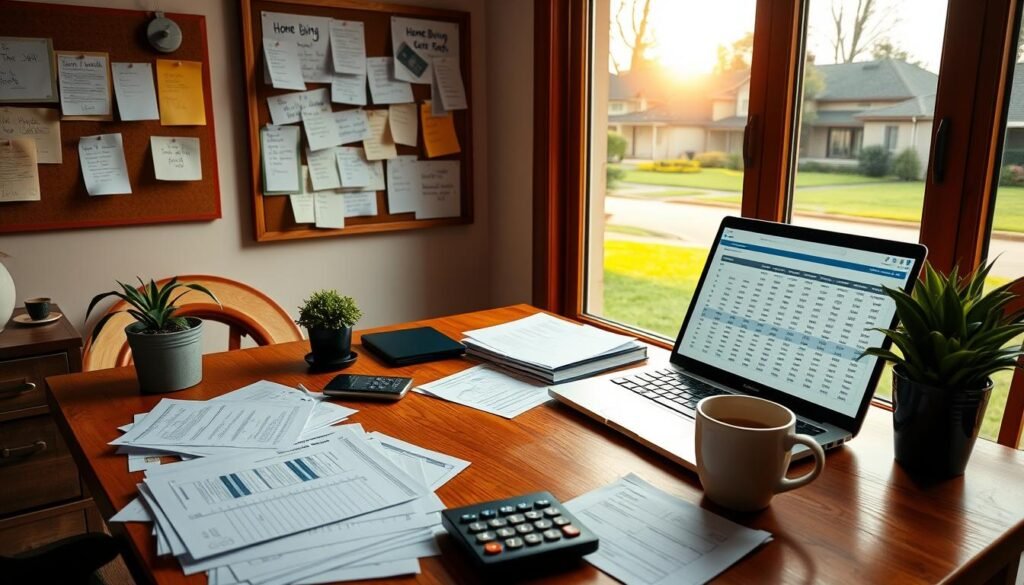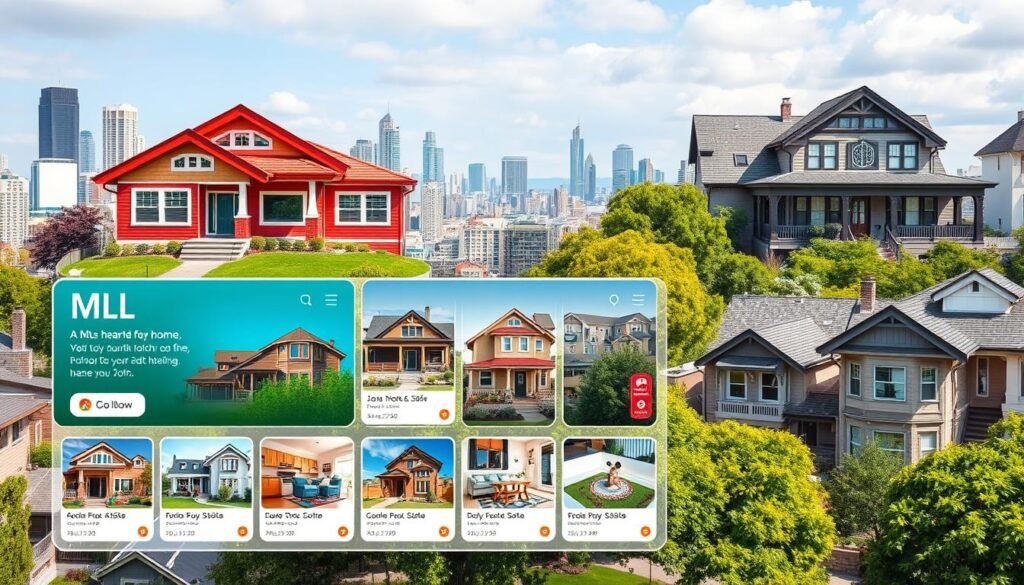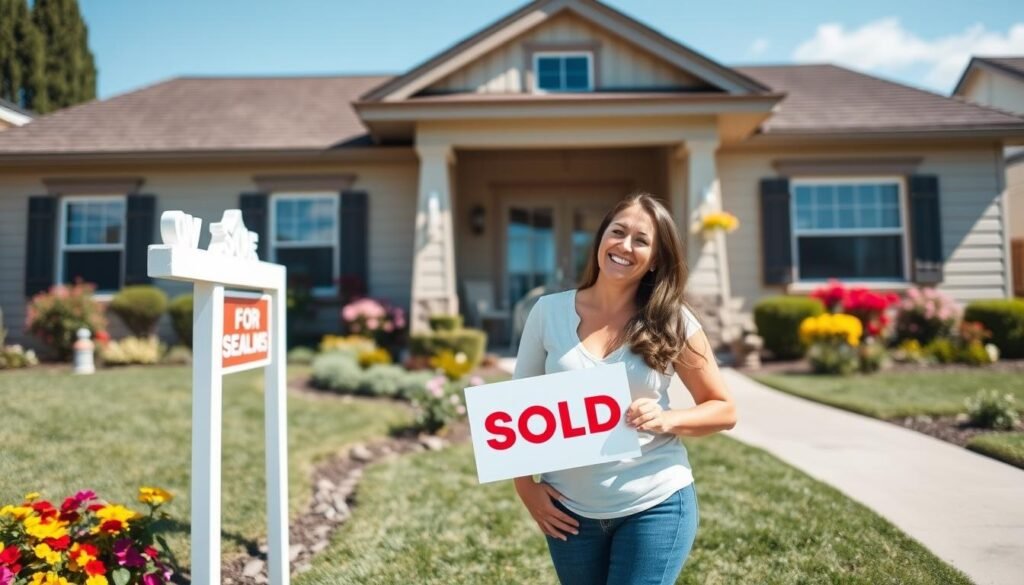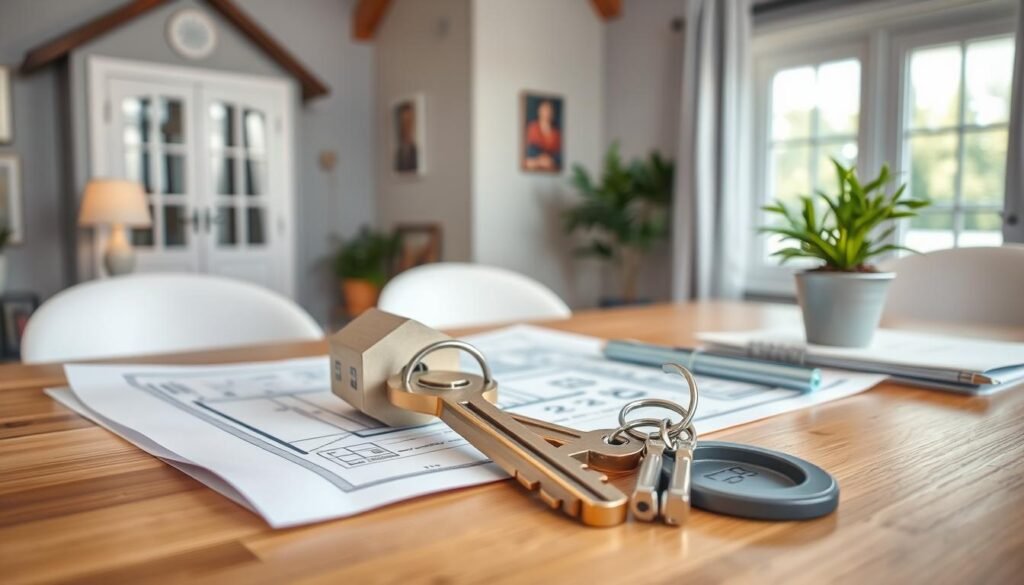This post may contain affiliate links, which means I may earn a commission if you purchase through these links at no extra cost to you
Are you ready to buy your first home and curious about the process? It’s a big move, full of exciting and challenging moments. For first-time buyers, getting ready is essential. I’ve created a detailed guide to help you from beginning to end.
Buying your first home is thrilling, but it has its hurdles. My Ultimate Financial Starter Kit will make your journey smoother. It covers managing money, choosing the right real estate agent, and how to make the best offer.
Owning a home costs about $17,459 a year, not counting your mortgage. These expenses include property taxes, insurance, and upkeep. Down payments are 3% to 20% of the loan amount, and closing costs can be up to 5%. So, it’s vital to check your financial health early.
The first-time homebuyer checklist guides you through checks, inspections, and costs. Making a plan that fits your budget is essential for a less stressful purchase. Let’s explore the steps to take on this exciting path.
Table of Contents
ToggleGetting Your Finances in Order
Buying a home is a big financial step. It’s important to get your finances straight before starting. Know your credit score and how much you can spend. Also, save for a down payment and understand mortgage pre-approval. These steps are crucial for first-time home buyers.

Check Your Credit Score
Your credit score is crucial for your mortgage rate. High scores mean better rates. Banks require a minimum score, which varies by loan type. It’s smart to check your score early. This way, you can fix any errors and maybe boost your score.
Assess Your Budget
Looking closely at your budget is key before buying a home. Include all expenses and future mortgage payments. Try to keep housing costs below 30% of your budget. Use home affordability calculators to see what you can afford. This takes into account your income, debts, and down payment.
Save for a Down Payment
For many, the down payment is a big challenge. Most renters see it as their main hurdle. Some loans offer down payments as low as 3%, or even 0%. Remember to budget for closing costs too. These usually add 2% to 5% to the home price. First-time buyer programs may help with these costs.
Understand Mortgage Pre-Approval
Getting pre-approved is important. It shows sellers you’re serious. The process checks your financial health, including income, spending, and debt ratio. Lenders want your mortgage payment to be less than one third of your income. Pre-approval shows how much you can borrow and estimate your monthly payments.
Prepare your finances well for a better home-buying journey. Check your credit, budget well, save for your down payment, and understand pre-approval. This sets you on the path to owning a home confidently.
Finding the Right Real Estate Agent
Finding a good real estate agent can make buying a home easier. They help you confidently move through each step. The right realtor makes the journey smoother.
Ask for Recommendations
Ask friends, family, and colleagues who recently bought homes for agent recommendations. Their experiences can tell you a lot about an agent’s effectiveness.
Interview Multiple Agents
Don’t just talk to one agent. Interview a few to see who’s the best fit. Compare their experience and how they communicate. It’s key to ask about how they deal with negotiations and what they charge.

Each interview should show how well they know the buying process. Ask about homes they’ve helped buy that are like what you want. Find out if they’re easy to get ahold of.
By taking these steps, you’re more likely to pick a great agent. A good agent makes buying a home easier and less stressful. They help you make smart choices, increasing your chances of finding the perfect home.
House Hunting and Making an Offer
For first-time homebuyers, planning carefully is a must. This approach helps you concentrate on what’s important without feeling lost. Let’s learn how to make this process smooth and fun.
Create a Home-Buying-Process Checklist
Begin with a checklist. It makes it easier to figure out what you need and want. Think about size, bedrooms, and how safe the area is. Include both what you like and need, like being close to places to shop and eat.
Utilize Online Tools and MLS
Use online resources and MLS listings to find houses. These tools let you see many houses quickly and easily. A big part of buyers, 41%, start their search online, showing how vital these tools are.

Understand Market Conditions
Knowing the current market helps you make smart choices. It matters if it’s a buyer’s or seller’s market for your bidding strategy. With this info, you can shape your offer to fit the market, boosting your chances of getting the house.
Negotiate the Offer
When you find your ideal home, it’s time to make a strong offer. A real estate agent can offer key advice on pricing and market trends. Giving 1-3% of the purchase price as earnest money shows you’re serious.
Going from looking for a house to owning one has many steps. Planning well and staying informed makes buying a home easier and more rewarding.
Final thoughts
A thorough checklist for first-time homebuyers is very important. It helps you get ready financially and pick the right house. It also makes moving into your first home smoother. By using a checklist, you manage important steps like getting a mortgage pre-approval. You also find a good real estate agent and save for a down payment.
Buying your first home might feel scary. Know your money situation well to keep debt manageable. And by figuring out your closing costs, which are usually 3% to 5% of your loan, you won’t be caught off guard.
Get help from mortgage brokers and real estate agents to make things easier. They get you the best deals and manage things like home showings. Getting a mortgage pre-approval shows sellers you’re serious. This can help a lot, especially if many people want the same house.
Don’t forget about escrow accounts. They help by breaking up big payments into smaller ones for your taxes and insurance. Also, look into assistance programs for first-time buyers. These can offer big helps like low interest rates and help with your down payment.
Make sure to get homeowners insurance and sort out your move early. This makes becoming a homeowner smoother. Guides like this one make sure you’re ready for everything.
With careful planning and good advice, moving into your first home is rewarding. Customize this checklist for your needs. Let it help you confidently meet each step of home buying.
Understanding the closing process of buying a home is also very important. Typically, this process takes 30 to 45 days after the offer is accepted. Keep an eye on your debt-to-income ratio during this time.
Choosing the right mortgage is vital. You have to decide between a 15-year or 30-year term. And if you want an adjustable-rate or fixed-rate mortgage. Your credit score also plays a big part in getting approved. Aim for a score above 629 for a smoother journey.
Down payments can be between 3% to 20% of the loan amount. Saving 20% can help avoid private mortgage insurance. Use tools like Experian to help increase your credit score by reporting on-time rent payments.
Homeowners insurance is also important. Its cost depends on your home’s replacement cost, age, condition, and location. It protects you from unexpected risks. Working with a real estate professional helps in getting a good deal.



